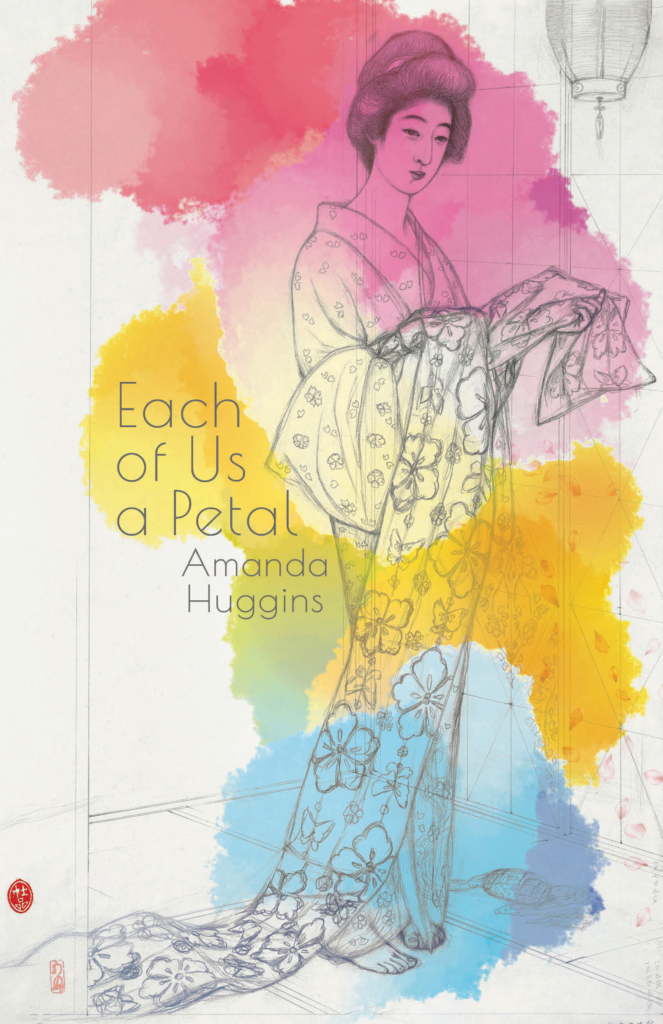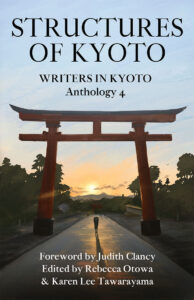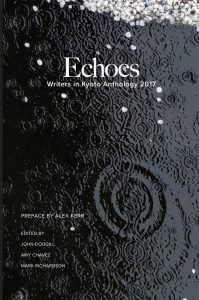A Short Story by Rebecca Otowa
Introduction
We don’t know very much about the 12 Apostles of Jesus, his constant companions during the latter part of his life, except that Simon Peter and his brother Andrew, and another pair of siblings, James and John, were fishermen; and the writer of one of the Gospels, St. John the Divine, was the longest lived and became a hermit on the island of Patmos in Greece; two others, Matthew and Mark, were also writers of Gospels. Another Apostle, Judas Iscariot, is probably one of the most famous people in history for whom the conflict between his original morality and the opportunity to be another person entirely tore him apart. He was the Apostle who is said to have betrayed Jesus “for thirty pieces of silver”. This is always said contemptuously, as though the amount should be enough to make us hate him. How betrayed? He gave information about Jesus’ whereabouts, and this led to Jesus’ being arrested by a “great multitude” of “priests and the elders of the people” in the Garden of Gethsemane, on the evening before his death; Judas kissed Jesus to indicate to the people that he was the one they sought. Judas subsequently felt tremendously guilty (we assume) about his role in Jesus’ arrest and subsequent execution, and he is recorded as having committed suicide shortly afterwards. We don’t know whether these stories recount factual events or whether they are meant to be symbolic of greater truths; there are several versions, which correlate among themselves, in the Gospels, though the writers did know each other, and it is possible that they collaborated or discussed these events, which they supposedly witnessed at first hand, before writing.
The great drama of Jesus’ arrest and crucifixion was put in train by the actions of
Judas, making him indispensable to the story. In some versions, Jesus knew that Judas was slated to become his betrayer, in fact knew the whole scenario beforehand, in which case Judas the human being was simply playing a role that was appointed and necessary. This short story is based on my imagination of Judas’ home life and his feelings about the events he was caught up in. It doesn’t tell the whole story, but attempts to give his actions some motive, which is absent (for whatever reason) in the original tale. He is universally despised for taking the bribe and giving the information – but which of us can say they would never do the same? Those were parlous times, and I expect Judas was not a stupid man. He probably guessed that whichever he did, he would be hated, vilified, and doomed by one sector or another of the community. Was he helpless? Was he simply a puppet of events, why did he do what he did? Is he meant to represent all people who are sitting on the fence of history?
In the rock opera Jesus Christ Superstar, which retells these events from a slightly more modern perspective, Judas is the Apostle who recognizes that the whole system of Jesus’ teachings is losing momentum and going “sour”, and decides to betray Jesus, and thus end the situation, as a solution to the problem. He is racked by guilt when he sees Jesus dying on the cross, and with his final breath before he commits suicide, accuses Jesus of “murdering” him.
We don’t know whether the Apostles were married, but in that time and place, many of them would have to have been. The idea that Judas was married is not based on anything but my own imagination. He was in all probability a householder with a family and a place in the community, and all the obligations and complex feelings that go with that. At least, that is what my imagination tells me.
Based on the King James version of the Bible and the rock opera Jesus Christ Superstar, this story is not connected to the atrocities now being perpetrated in the Middle East in any way. It is just something that occurred to me.
* * *
The sun was low in the sky, and it was still hot, when Judas came home, tired and dusty, from another day of trekking the countryside in the wake of Jesus and the group that always surrounded him. He entered his house, lifting the latch of the stout wooden door, and was met by his wife, who proffered a ceramic bowl of water for him to wash his face, hands, and feet. As he bent to the water, his children flocked around him, chattering busily, and he greeted them before grabbing the cloth his wife had left, wiping the parts he had rinsed off, and tossing the bowlful of dusty water out the door with a swing of his arms. The water landed with a smack in the midst of the small fenced kitchen garden in front of the house. He went in to supper with his family.
When the evening rituals were over, and the children had been herded off to bed, Judas sat enjoying the cool of the evening on a bench outside the front door. After a while, his wife came out, dipped a ladle into the water jar just outside the door, and took a drink before sitting down next to her husband. They sat together savoring the cool breeze for a moment, and then she spoke.
“The vegetables will grow nicely this year, everybody says,” she said as she looked at the small shoots growing in the kitchen garden. Then, looking sidelong at him, “We will need every scrap of food if you persist in this path you have chosen.”
They both remembered the recent twists and turns of their shared life – his meeting with Jesus of Nazareth and how he became a full-time follower, abandoning his work with his father-in-law in order to do so, and that meant that even with her parents helping them in various ways, there was no money coming in. Times were hard with the high taxes levied by the Romans, and there were many expenses. Judas was worried, and his wife more so. She continued,
“We need money. You are a family man, but you are not supporting us. I’m ashamed in front of my family and friends. Pretty soon the shame will turn to penury. Thank goodness my father owns this house, so we will not be turned out to become indigent beggars, like so many others, but still. What are you going to do? We can’t go on like this. You have to decide!” She got up restlessly and entered the garden, inspecting the young plants that grew there.
Judas stared out, past the garden to the houses opposite theirs in the village. He knew that he wasn’t pulling his weight as a citizen these days, and he also knew that many of his fellow villagers thought he was mentally defective, abandoning his regular life in order to throw in his lot with that hothead. The dream that Jesus had offered, of direct communication with the Father God, circumventing the priests of the temple, had been so alluring. But was it practical? The priests had everything sewn up in the lives of the villagers. The necessary rituals of life were their province, and theirs alone; and had to be paid for by “donations” which felt like just another form of taxation. Everyone knew that there was venality among the priests, some of whom allowed moneylenders and other scum to ply their trades in the temple precincts in order to line their own pockets; but religion was the lifeblood of the people, and whatever the priests said, the villagers had to do, in order to stay within the fold of ordinary folk, where it was safe, if expensive.
Judas knew that Jesus found it disgusting that the priests of the temple were more interested in money than in the spiritual health of the community – in fact, most of them seemed to be of the opinion that money – riches – were the spiritual health of the community, or at least one of its most obvious indicators. Jesus had led a raid on the temple recently, in which he laid about him with scourges, toppling the stands of the money changers and places where sacrificial animals could be bought, and said “Make not my Father’s house an house of merchandise.” The priests were angered, a lot of the temple’s income being derived from these stands, and Judas knew it was only a matter of time before they would seek restitution for this outrage. It was not enough that Jesus, and increasingly his followers, were rabble-rousers; there was also ample evidence that Jesus claimed that he was a child of the Father God, and that anyone could say the same thing. This was not acceptable to the priests, whose livelihood and very existence were endangered by this idea; in fact it was blasphemy, and illegal according to their system. Those priests were going to make sure that Jesus and his followers would be put down. Their ideas and actions were getting too dangerous. Life was already quite precarious with stress between the inhabitants and the government of Pilate, the governor of Judea under Emperor Tiberius of Rome; various insurrections had kept the well-armed Roman soldiers on every corner busy for months. The Romans held the locals in contempt, not least because of their belief in one God, which the Romans found ridiculous in the light of their own polytheocratic society. The whole thing was a powder-keg. And was Judas to go up with everything else when it blew? What of his family and village? Did he have the courage to stand up for the ideas Jesus taught and that he, as a follower, had helped to promulgate? And what good would it do for him to stand up for them?
Judas knew all this; his own family were suffering because of the situation, and he had exacerbated it by throwing in his lot with a known troublemaker. What should he do? Gradually an idea came to him: it was repellent, but it would quiet things down for the moment. And if he played his cards right, he would get some ready cash, which would mollify his wife and her family, as well as pacifying the priests and going a long way toward making village life, perhaps even national life, palatable again. He got up from the bench, resolved to meet with the priests in the morning. Calling a good night to his wife, he entered the house and went to bed.
* * *
The next morning the villagers were out and about early, preparing for the Feast of Passover which was to be held later that week. Judas slipped out his door and joined the foot-traffic. He was due to meet Jesus and his followers soon in the center of town; but first he needed to talk to someone in authority, and institute his plan. After a sleepless night, he had awakened determined.
He walked to the temple gate and went inside, to the large and spacious area within. The stands of the money changers and other little shops were back in place all around the perimeter; it would take more than one enraged man with a whip, even one with many followers, to roust them out permanently. Judas skirted them and came to the colonnaded walkway where, he knew, some of the priests would be congregated, enjoying some discussion of the Holy Books after breakfast. There they were.
“What do you want?” One of a small group of priests addressed him as he approached.
“I have come about the blasphemer Jesus of Nazareth. I wish to talk to someone in authority.”
“You are Judas Iscariot, are you not?” As a householder, Judas was known to the temple – or at least his family was.
“Yes.”
“Follow me.” The priest who had addressed him excused himself from the group, scholars who spent their days, when not engaged in ritual, arguing over fine points of religious law. Judas and the priest walked into a doorway and up some stairs. He was ushered into a well-appointed room. In a very short while, three high-level priests, recognizable by their robes, came in. They sat down on marble benches nearby. Judas, not invited to sit, remained standing.
“Now what is this all about?” said one.
“I understand that Jesus of Nazareth has caused you some trouble.”
“That’s putting it mildly. We are at our wits’ end. This lunatic and his followers have broken several of our laws. There have been many outrages, including the recent one where this man incited a riot right in the temple grounds. The Roman government wants us to do something about it.” The three priests nodded to each other.
Judas swallowed. “Well, I have been in that group of followers recently, and I have become alarmed at the turn things have taken. Therefore I have come to you, to do what I can to help you to restore the status quo.”
“What can you do? Oh, if you have been a follower, you can lead us to him so we can arrest him. Would you be willing to do that?”
Judas hesitated. He was now afraid of his own decision, but he had already identified himself as one of Jesus’ followers. If he didn’t do what they wanted, they might come after him. Then what would happen to this family? He had to decide now which side he should be on. Finally he took the plunge.
“I can see no alternative. At the upcoming Passover feast, Jesus and his main followers will be at a certain place I know, and afterwards, in the evening, according to his custom, Jesus will be in a secluded garden, communing, as he says, with his Father God.”
The priests harrumphed and their eyes flashed. “Which garden?”
“The Garden of Gethsemane. That is his favorite, because it is so isolated.”
“Good. Of course we will pay you for this information.” The priests conferred in whispers. “How does thirty pieces of silver sound?”
Judas was flabbergasted at the size of the sum. That would go a long way toward getting his family out of the financial hole they were in. But at what cost! He had been living cheek by jowl with Jesus and the other main followers for weeks. He knew Jesus intimately and would have called him a friend. How could he do this? But his misgivings about the methods of the followers, and his money worries, were too strong. He spread his hands deprecatingly. “Well, I don’t want to take blood money …but I see no alternative. Since I have been a follower of this Jesus, my own income has dwindled and my wife and family are in danger of penury.”
“It’s settled then.” The priest laboriously stood up and exited the room, soon returning with a cloth bag that seemed very heavy. “Here you are.”
“All right, you and soldiers come to the garden after dinner on Passover, and I will point him out to you by kissing him on the cheek.”
“That is good. You have done the right thing, for your family and for your community. Now don’t forget your promise. We know who you are, and if it doesn’t go well, we will know where to look for you. We will arrange for soldiers to come with us.” The three priests filed out, and Judas was left alone.
The enormity of his action weighed on Judas even more heavily than the cloth bag, which he stowed away in his clothing before turning and making his way out. He was not to know that that bag of money – the thirty pieces of silver – would be coupled with his name and his deed, and define him, down through the ages. He knew only that he had made a hard decision, and had decided on the side of his family and community. He could have done nothing else. And yet…
* * *
Rebecca Otowa is a long-time member of Writers in Kyoto and serves on the WiK Committee as Reviews Supervisor. She is the author of Tuttle publications At Home in Japan, My Awesome Japan Adventure, and The Mad Kyoto Shoe Swapper, as well as her self-published book of illustrations, 100 Objects in My Japanese House.













Recent Comments